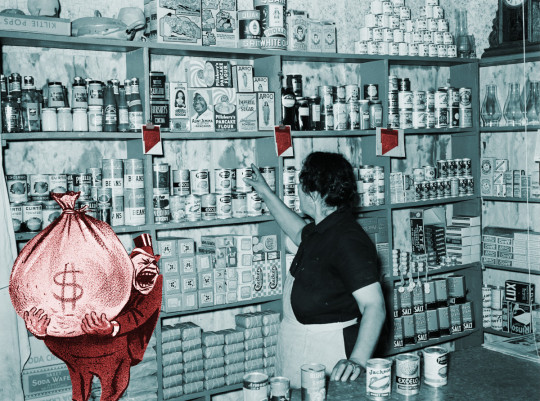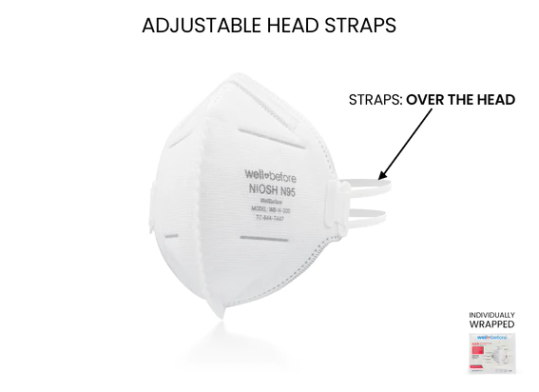#buy low sell high
Explore tagged Tumblr posts
Note
Brings a full cow for him


#undertale#flowey#ask flowey#ask blog#ask undertale#art#small artist#undertale fanart#undertale art#paper art#flowey undertale#buy low sell high#sorry folks business is business#the-white-soul#rose anon#milk
8 notes
·
View notes
Text
Oh boy!
every day you must figure out whats for dinner
586 notes
·
View notes
Text

GOT ACCEPTED INTO A LOCAL CON.. BABY'S FIRST ART MARKET
#Boothing#Going to have a new tag now.. What a beautiful day.#Excuse the tone switch. The description is us being blurry but I (Chara) am truly the one in front.#Wow! What joy. =) Haha. Patron of the Arts do not worry about us not having inventory yet...#But I am very excited to wake up tomorrow to pay for the booth fee and finally get our gears running for our inventory and displays.#This is what we have been doing our Pride animals for. It has always been for a dream like this:#Which is to say‚ selling them physically at an art market.#Oh. Oh my goodness. The Wheelchair sticker will be real.. The Pride Animals will be real everyone.#Not just a redbubble idea. An actual design that has coloured borders or borderless designs because WE want them to.#Sitting there with other artists and making friends. Accepting tips and making jokes with everyone.#Joy joy joy.#We plan on turning the whole thing into a small documentary for our personal self that we will upload to Youtube after PotA is over.#If anyone is interested in our future highs and lows...#The funny thing is.. I wonder how everyone will react to our art style changing every now and then in our booth. Haha!#“Why is your art style for this print different from this other print”#Well you see.. I have something called.. Dissociative Identity Disorder my friend.#Oh also! We are going to be selling Palestine related stickers for people to buy in a PWYW system with a minimum price.#So it will be our way of giving as well as other people can knowingly support the people in Gaza in an easier way.#We haven't posted anything related to this yet because we want to finish the entire set. We have ideas in mind since we wanted to avoid#using text/words and instead use symbols like animals and plants or objects.#Haha our catalogue will hopefully be varied enough for people.#I wonder if it will be too diverse... We also worry about the opposite problem where people might not 'follow us' because our style changes#too much to 'follow for'... hm.. Well that is a problem for them‚ not me‚ I should say. =)#From Chara#Mod Stuff
13 notes
·
View notes
Text
i will not lose to the treasure marketplace scalpers
#MAAAAAAAAN JUST LET ME BUY RIFT#STOP PUTTING IT UP FOR 50% MORE THAN IT IS IN THE MARKETPLACE#i'll say it now. if you buy low on marketplace to sell for high on the AH. i hope you piss yourself!#have an uncomfortable day!
2 notes
·
View notes
Text
logged into my neopets account for the first time in like 6 years to price check stuff after the great de-inflationing and my petpet investments were MOST unwise.
#i was never like a mega millionaire but i had some stonks#BUY HIGH AND SELL LOW#the only thing impressive about my account is how old it is tbh#and i have a mutant cybunny and draik
7 notes
·
View notes
Video
youtube
Shane Says: Why Selling Low on Anthony Richardson & Tyreek Hill is Smart...
#youtube#tyreek hill#miami dolphins#anthony richardson#indianapolis#colts#fantasy football#dynasty football#football#nfl#sell low#buy high
1 note
·
View note
Text
Is this a safe space to admit I'm really fucking hating this 13 Days of Swiftmas thing?
#the prices are high the qualities are low and theyre unnecessarily limited so that#1) people panic buy cos they know itll sell out otherwise. so they dont have a chance to think about if they want it or not cos fomo#2) resellers buy it just to sell on for crazy prices and make it more ''valuable'' even tho theyre already overpriced to begin with#umg do not care about fans! they care about profit!#they buy the cheapest possible materials with the cheapest possible designs. theres no creativity or sustainability involved#i mean those $400 guitars are a fucking joke. they cost $100-$150 without a shittily designed taylor pic#they couldve been recreations of her eras guitars but that wouldve been too much effort#unless theres something that Really Grabs Me im never buying her merch again#im still so pissed off that my ttpd shirt cracked after a few washes. i buy clothes for life. i expect a shirt of that price to fucking las#i dont regret buying that latest rep jumper cos its the same design of the og rep hoodie ive wanted for SO LONG and it suits me#but that might honestly be it for me merchwise#i know none of it is taylors fault but like. seeing how awsten is so hands on and refunded the ip2 stuff because it was too slow bad qualit#the difference is astounding#anyway stream cmbm and fuck umg
0 notes
Text
How to Trade Swing Index: A Comprehensive Guide
Swing trading is a popular strategy among traders who aim to capitalize on short- to medium-term price movements in financial markets. One of the tools that can significantly enhance swing trading strategies is the Swing Index. This comprehensive guide will walk you through everything you need to know about the Swing Index, from understanding its basics to implementing it in your trading…

View On WordPress
#Backtesting#Breakouts#Buy orders#Charting platforms#Commodity Trading#Financial Markets#forex trading#J. Welles Wilder#Market Conditions#MetaTrader#moving averages#NinjaTrader#price action#Relative Strength Index (RSI)#Reversals#Short-selling#stock trading#Stop-loss levels#Swing Index#swing trading#Take-Profit Levels#Technical indicator#trading signals#Trading Strategy#TradingView#Trend Identification#True High#True Low#True Range#Volume indicators
0 notes
Text
The one weird monopoly trick that gave us Walmart and Amazon and killed Main Street

I'm coming to BURNING MAN! On TUESDAY (Aug 27) at 1PM, I'm giving a talk called "DISENSHITTIFY OR DIE!" at PALENQUE NORTE (7&E). On WEDNESDAY (Aug 28) at NOON, I'm doing a "Talking Caterpillar" Q&A at LIMINAL LABS (830&C).

Walmart didn't just happen. The rise of Walmart – and Amazon, its online successor – was the result of a specific policy choice, the decision by the Reagan administration not to enforce a key antitrust law. Walmart may have been founded by Sam Walton, but its success (and the demise of the American Main Street) are down to Reaganomics.
The law that Reagan neutered? The Robinson-Patman Act, a very boring-sounding law that makes it illegal for powerful companies (like Walmart) to demand preferential pricing from their suppliers (farmers, packaged goods makers, meat producers, etc). The idea here is straightforward. A company like Walmart is a powerful buyer (a "monopsonist" – compare with "monopolist," a powerful seller). That means that they can demand deep discounts from suppliers. Smaller stores – the mom and pop store on your Main Street – don't have the clout to demand those discounts. Worse, because those buyers are weak, the sellers – packaged goods companies, agribusiness cartels, Big Meat – can actually charge them more to make up for the losses they're taking in selling below cost to Walmart.
Reagan ordered his antitrust cops to stop enforcing Robinson-Patman, which was a huge giveaway to big business. Of course, that's not how Reagan framed it: He called Robinson-Patman a declaration of "war on low prices," because it prevented big companies from using their buying power to squeeze huge discounts. Reagan's court sorcerers/economists asserted that if Walmart could get goods at lower prices, they would sell goods at lower prices.
Which was true…up to a point. Because preferential discounting (offering better discounts to bigger customers) creates a structural advantage over smaller businesses, it meant that big box stores would eventually eliminate virtually all of their smaller competitors. That's exactly what happened: downtowns withered, suburban big boxes grew. Spending that would have formerly stayed in the community was whisked away to corporate headquarters. These corporate HQs were inevitably located in "onshore-offshore" tax haven states, meaning they were barely taxed at the state level. That left plenty of money in these big companies' coffers to spend on funny accountants who'd help them avoid federal taxes, too. That's another structural advantage the big box stores had over the mom-and-pops: not only did they get their inventory at below-cost discounts, they didn't have to pay tax on the profits, either.
MBA programs actually teach this as a strategy to pursue: they usually refer to Amazon's "flywheel" where lower prices bring in more customers which allows them to demand even lower prices:
https://www.youtube.com/watch?v=BaSwWYemLek
You might have heard about rural and inner-city "food deserts," where all the independent grocery stores have shuttered, leaving behind nothing but dollar stores? These are the direct product of the decision not to enforce Robinson-Patman. Dollar stores target working class neighborhoods with functional, beloved local grocers. They open multiple dollar stores nearby (nearly all the dollar stores you see are owned by one of two conglomerates, no matter what the sign over the door says). They price goods below cost and pay for high levels of staffing, draining business off the community grocery store until it collapses. Then, all the dollar stores except one close and the remaining store fires most of its staff (working at a dollar store is incredibly dangerous, thanks to low staffing levels that make them easy targets for armed robbers). Then, they jack up prices, selling goods in "cheater" sizes that are smaller than the normal retail packaging, and which are only made available to large dollar store conglomerates:
https://pluralistic.net/2023/03/27/walmarts-jackals/#cheater-sizes
Writing in The American Prospect, Max M Miller and Bryce Tuttle1 – a current and a former staffer for FTC Commissioner Alvaro Bedoya – write about the long shadow cast by Reagan's decision to put Robinson-Patman in mothballs:
https://prospect.org/economy/2024-08-13-stopping-excessive-market-power-monopoly/
They tell the story of Robinson-Patman's origins in 1936, when A&P was using preferential discounts to destroy the independent grocery sector and endanger the American food system. A&P didn't just demand preferential discounts from its suppliers; it also charged them a fortune to be displayed on its shelves, an early version of Amazon's $38b/year payola system:
https://pluralistic.net/2022/11/28/enshittification/#relentless-payola
They point out that Robinson-Patman didn't really need to be enacted; America already had an antitrust law that banned this conduct: section 2 of the the Clayton Act, which was passed in 1914. But for decades, the US courts refused to interpret the Clayton Act according to its plain meaning, with judges tying themselves in knots to insist that the law couldn't possibly mean what it said. Robinson-Patman was one of a series of antitrust laws that Congress passed in a bid to explain in words so small even federal judges could understand them that the purpose of American antitrust law was to keep corporations weak:
https://pluralistic.net/2023/04/14/aiming-at-dollars/#not-men
Both the Clayton Act and Robinson-Patman reject the argument that it's OK to let monopolies form and come to dominate critical sectors of the American economy based on the theoretical possibility that this will lead to lower prices. They reject this idea first as a legal matter. We don't let giant corporations victimize small businesses and their suppliers just because that might help someone else.
Beyond this, there's the realpolitik of monopoly. Yes, companies could pass lower costs on to customers, but will they? Look at Amazon: the company takes $0.45-$0.51 out of every dollar that its sellers earn, and requires them to offer their lowest price on Amazon. No one has a 45-51% margin, so every seller jacks up their prices on Amazon, but you don't notice it, because Amazon forces them to jack up prices everywhere else:
https://pluralistic.net/2024/03/01/managerial-discretion/#junk-fees
The Robinson-Patman Act did important work, and its absence led to many of the horribles we're living through today. This week on his Peoples & Things podcast, Lee Vinsel talked with Benjamin Waterhouse about his new book, One Day I’ll Work for Myself: The Dream and Delusion That Conquered America:
https://athenaeum.vt.domains/peoplesandthings/2024/08/12/78-benjamin-c-waterhouse-on-one-day-ill-work-for-myself-the-dream-and-delusion-that-conquered-america/
Towards the end of the discussion, Vinsel and Waterhouse turn to Robinson-Patman, its author, Wright Patman, and the politics of small business in America. They point out – correctly – that Wright Patman was something of a creep, a "Dixiecrat" (southern Democrat) who was either an ideological segregationist or someone who didn't mind supporting segregation irrespective of his beliefs.
That's a valid critique of Wright Patman, but it's got little bearing on the substance and history of the law that bears his name, the Robinson-Patman Act. Vinsel and Waterhouse get into that as well, and while they made some good points that I wholeheartedly agreed with, I fiercely disagree with the conclusion they drew from these points.
Vinsel and Waterhouse point out (again, correctly) that small businesses have a long history of supporting reactionary causes and attacking workers' rights – associations of small businesses, small women-owned business, and small minority-owned businesses were all in on opposition to minimum wages and other key labor causes.
But while this is all true, that doesn't make Robinson-Patman a reactionary law, or bad for workers. The point of protecting small businesses from the predatory practices of large firms is to maintain an American economy where business can't trump workers or government. Large companies are literally ungovernable: they have gigantic war-chests they can spend lobbying governments and corrupting the political process, and concentrated sectors find it comparatively easy to come together to decide on a single lobbying position and then make it reality.
As Vinsel and Waterhouse discuss, US big business has traditionally hated small business. They recount a notorious and telling anaecdote about the editor of the Chamber of Commerce magazine asking his boss if he could include coverage of small businesses, given the many small business owners who belonged to the Chamber, only to be told, "Over my dead body." Why did – why does – big business hate small business so much? Because small businesses wreck the game. If they are included in hearings, notices of inquiry, or just given a vote on what the Chamber of Commerce will lobby for with their membership dollars, they will ask for things that break with the big business lobbying consensus.
That's why we should like small business. Not because small business owners are incapable of being petty tyrants, but because whatever else, they will be petty. They won't be able to hire million-dollar-a-month union-busting law-firms, they won't be able to bribe Congress to pass favorable laws, they can't capture their regulators with juicy offers of sweet jobs after their government service ends.
Vinsel and Waterhouse point out that many large firms emerged during the era in which Robinson-Patman was in force, but that misunderstands the purpose of Robinson-Patman: it wasn't designed to prevent any large businesses from emerging. There are some capital-intensive sectors (say, chip fabrication) where the minimum size for doing anything is pretty damned big.
As Miller and Tuttle write:
The goal of RPA was not to create a permanent Jeffersonian agrarian republic of exclusively small businesses. It was to preserve a diverse economy of big and small businesses. Congress recognized that the needs of communities and people—whether in their role as consumers, business owners, or workers—are varied and diverse. A handful of large chains would never be able to meet all those needs in every community, especially if they are granted pricing power.
The fight against monopoly is only secondarily a fight between small businesses and giant ones. It's foundationally a fight about whether corporations should have so much power that they are too big to fail, too big to jail, and too big to care.

Community voting for SXSW is live! If you wanna hear RIDA QADRI and me talk about how GIG WORKERS can DISENSHITTIFY their jobs with INTEROPERABILITY, VOTE FOR THIS ONE!

If you'd like an essay-formatted version of this post to read or share, here's a link to it on pluralistic.net, my surveillance-free, ad-free, tracker-free blog:
https://pluralistic.net/2024/08/14/the-price-is-wright/#enforcement-priorities
#pluralistic#Robinson-Patman Act#ftc#alvaro bedoya#monopoly#monopsony#main street#too big to jail#too big to care#impunity#regulatory capture#prices#the american prospect#Max M Miller#Bryce Tuttle#a and p#wright patman
2K notes
·
View notes
Text
Currently Listening To: "Sell Low" by Portraits, Michael Lessard
0 notes
Text
Playing through Fallout:New Vegas for the first time in years. And I'm developing a newfound appreciation for the damage done to the intended pacing of the narrative with the addition of the Courier's Stash. I wake up in Goodsprings, and as part of the extended tutorial you have Ghosttown Gunfight, the fairly self-contained faction war between Goodsprings and the Powder Gangers. And the design intent, I think, is that this is probably supposed to be a pain in the ass, with only one or two avenues of support available to you given the low level at which you'll pick this one up. Six Powder Gangers, some in body-armor, would be a serious threat, and committing to fighting against that with your dinky 9mm and a varmint rifle seems like a rough time! An actual uphill battle, doing the right thing instead of the easy thing. Fortunately, Benny inexplicably left my handy 40mm grenade launcher in the grave with me, so I cleaned up.
I'm working my way south, and, you know, in a version of the game where Benny didn't inexplicably leave my handy 40mm grenade launcher in the grave with me, this would have been the knock-on effect of my "good" Karmic choice in defending Goodsprings; the road south is littered with powder gangers who'd have been neutral had I not kicked the hornet's nest. As it stands? Free experience. I hit Primm, and fighting through the cramped hallways of the Bison Steve I encounter an enemy armed with what was clearly supposed to be the first heavy weapon I'd encounter in the world. Tight Corridors. Inexplicable Grenade Launcher. I clean up. South I go to the Mojave outpost, Nipton, that whole thing. And clearly, clearly you aren't meant to take a swing at Vulpes here, right? You're supposed to take it in, get a sense for the legion. In the version of the game that shipped you're supposed to get bodied if you try to kick the beef gate here. There are allowances in the game for if you pull it off, sure, but I did try with just the service rifle, without the glorious first-strike capabilities afforded to me by the 40mm grenade launcher that Benny inexplicably left in the grave with me. It didn't go very well!
So now I'm dogged by Legion hit squads on my way to Novac, which I get the distinct impression was not the point in the game at which this was supposed to start happening to me, because I am gathering up some pretty expensive equipment, all sold for space. I punch through to Vegas, and at this stage, the clear developer intent is that you need to spend some time milling around Freeside or Camp McCarran in order to gain access to the Strip- do odd jobs to scrape up the money, buy the forgery from Mick and Ralphs, gain monorail access, get your science skill high enough to hack the robot. Get the lay of the land, get a feel for the people, send some time stewing in the human cost of House's walled garden before you head in and hear the pitch from the big man himself.
Except I've got 5000 caps from selling off all the legion killteam equipment. In I go!
And the fun thing is, right, the Courier's stash can't be diegetic, but it is having a very direct impact on the world here. A top legion guy just went down to my inexplicable 40mm grenade launcher. Whatever else I'm roleplaying as, I am roleplaying as a guy who woke up in the possession of an inexplicable 40mm grenade launcher, and neither I nor my character can plausibly ignore that fact given its terrible bloodstained utility. I play a man, a man who would be a good man, a man nonetheless bewitched by the terrible resolutory power of the grenade launcher. My best friend, the inexplicable 40mm grenade launcher! My worst enemy, the inexplicable 40mm grenade launcher!
8K notes
·
View notes
Text
FACT: People make resin die.
FACT: Some craftsmen, NOT ALL OF THEM, some craftsmen are just people in their basement putting resin into moulds and selling those babies online with the care and precision of a whiskey licked blacksmith in the wild west.
FACT: It's not unlikely for a lot of those dice to be incorrectly filled, uneven or Weighted.
FACT: If I was to buy a whole bunch of these die with many of them being weighted, some of them would be weighted to low numbers and some to high.
FACT: It is reasonable and likely for me to gravitate towards the die that give me High Numbers and go "oh these are my special dice" "oh this one is blessed by the goddess" and to remove low rolling dice from my line up.
FACT: This is not a phenomenon that occurs as often with metal die.
FACT: If I was a player who staunchly defended my metal dice while everyone else at the table used resin or fanmade dice, if I was a player who stood by my dice through thick or thin, refusing to switch dice out from my roster, if I was a player who had Publicly claimed my loyalty to metal dice on many occasions, I would statistically roll worse.
FACT: Brian Murphy does not have just as good a chance as rolling as any of you.
#dimension 20#text post#brennan lee mulligan#brian murphy#murphy#dnd#dice#resin#metal#fantasy high#fhjy
4K notes
·
View notes
Text
Mask recommendations for ordering online (NA)
Note: for consistency, practicality, and simplicity all prices are listed in USD.
masknerd has a comprehensive data set on hundreds of masks he's tested according to his own criteria and methodology (pinned tweet). find his recommendations on his youtube channel. many of the following are on his list as well!
DISPOSABLE MASKS
3M Aura and Vflex: one of the most commonly recommended brands of N95. Where to buy?
- US: see here - Canada: see here - Multiple sizes per model. These suppliers are good for bulk ordering. If you aren't sure if something will fit you, check out the sample kits in the next recommendation - Price point: varies from $1-1.3 USD per mask depending on supplier
Breatheteq (US):
- KN95s that come in small, medium, large, or XS (kids) - Offers sample kits so you can test out what your size is - Comes in a few different colours. shoutout to the lavender - Earloop only - Price point: $69.75 USD for a 50-pack (~1.4 USD per mask)

Canadastrong (Canada):
- The Canadian equivalent to Breatheteq, but also carries N95s of other brands such as 3M Aura and Vflex, Vitacore, and Drager X-plore
Vitacore (Canada and US):
- N95 certified, but actually has 99% filtration - Both earloop and head strap versions (warning that the head strap seems to fit considerably smaller) - Regular and small adult sizes offered, also a kid's size - Price point: $33.99 for a 30-pack (~1.1 USD per mask)

Wellbefore (US, ships to Canada):
- N95s, KN95s, and KF94s - Head straps, normal earloops, or adjustable earloops depending on model - Kids/petite size available for certain KN95 models - Wide range of colours (excluding N95s) - Price point: varies per model, from $0.79 USD to $2.09 USD per mask - Also sells Covid tests, over the counter medication, and medical supplies

Masklab (US):
- This is an indulgent option for if you want to go out and look good, while still staying safe. These are masks that are part of your outfit - FFP2 certified, equivalent to KF94s - Standard size and slim fit series - Many beautiful patterns - Price point: $24.44 USD for a 5-pack ($4.88 per mask) for the patterned KF ones, ~$3.4 USD for the plain KF ones, ~$3.3 USD for the slim fit series, including patterns.

ELASTOMERIC MASKS
Flomask (US, ships to Canada):
- Reusable elastomeric mask (with replaceable filters) that meets KN95 standards - Two adult sizes (low/medium nose ridge and medium/high nose ridge) and a kid's size - Adjustable straps - Price point: $122 USD. 50-pack replacement filters: $81.46 (filters to be changed after 20-40 hours of use, depending on filter type)

A humble P100 elastomeric respirator from your local Home Depot or similar store! Magnitudes cheaper than the Flo mask (both the respirator itself and the filters)--however, I can't offer estimates for how often filters should be replaced. May not look pretty, but the most economical option for the highest degree of filtration if you aren't self-conscious.

General advice:
N95 or higher are the most reliable. They normally come with head straps, which offer better protection by making a tighter seal around your face.
But fit and comfort are the most important! Find a mask that fits your face and leaves the least amount of gap possible. KN95s are often more comfortable and breathable--find what's right for you.
You can wear different masks for different situations depending on risk level!
If you're hesitant to buy online, here's advice on how to tell if your respirator is legitimate.
A SIP drinking valve can be installed on any disposable mask to allow you to drink in public with less risk.
If anyone has other recommendations, please feel free to add!
3K notes
·
View notes
Text
The problem with "I could do [X popular modern art piece]" being responded to with "then go ahead and do it!" is that I think the point that a lot of people are making is not so much "this artwork has no value" but rather "modern popular art is a heavily gatekept industry that you cannot enter into without requisite pre-existing social cachet".
So even if someone is technically/artistically able to create something on the level of a gallery piece (and, to be honest, I think substantially more people have that ability than anyone would be likely to admit) they do not exist in an environment where they have the financial freedom or recognition for that to be possible or worthwhile.
I assure you that there are millions of people who absolutely could and would want to make Pollock style abstract paintings or giant time-consuming sculptures made with garbage or whatever, but they're currently stuck in a low wage job and if they quit in order to make their masterpiece then nobody would bat an eye and they would go broke because they wouldn't have the sociocultural weight to impart that special numinous reverence that "high art" is granted, and which makes it financially viable as a thing to spend your time doing.
It is also true that a lot of people who have that cachet are able to spend their time making pretty much whatever, and will still be able to support themselves even if the art itself is fairly mediocre outside of the time dedicated to its creation.
Anyway, I feel that people are perfectly valid in feeling a sense of vague resentment at that when they visit galleries holding paint/canvas combinations that sell for more than they will earn in several years. I mean it speaks to what society is implying about their worth as a person. I don't think that it's as much about arrogance and entitlement as people like to pretend, because a lot of that comes from buying into the mystique of the Worthy Artist anyway.
5K notes
·
View notes
Text
The 5/06/23 Weekend Report Preview
The dollar formed a swing high on Wednesday. The dollar is currently in a daily downtrend. Forming a swing high below the upper daily cycle band and closing back below the 10 day MA indicates a continuation of its daily downtrend and signals a cycle band sell signal. However the dollar did not deliver bearish follow through on Thursday. Instead the dollar printed a bullish reversal on…

View On WordPress
0 notes
